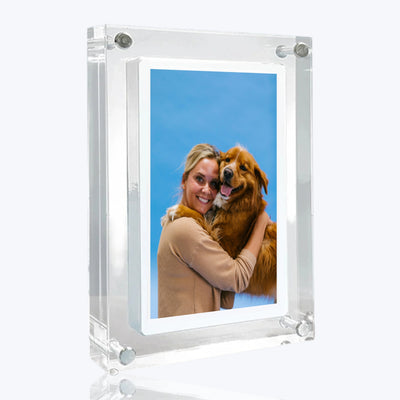Have you ever noticed your dog getting the zoomies on a windy day or turning into a couch potato when it rains? It's not just your imagination—weather can significantly influence your dog's behavior. But why does weather have such an impact, and how can you use this knowledge to improve your dog's mood and energy levels? Let’s explore the fascinating ways different weather conditions affect our canine companions.

The Impact of Sunny Days When the sun is shining, you might find your dog more energetic and eager to go outside. Sunlight plays a crucial role in this behavior:

- Vitamin D: Just like humans, dogs can absorb vitamin D from the sun, which helps regulate their mood and keeps their bones healthy.

- More Outdoor Time: Sunny days often mean longer walks and more playtime outside, which can lead to a happier and more stimulated pet.

The Calming Effect of Rainy Days Conversely, rainy days might make your dog lethargic or anxious, especially if they’re sensitive to the sounds and changes in atmospheric pressure:

- Noise Sensitivity: The sound of rain and thunder can be frightening to some dogs, leading to anxiety and stress.

- Less Activity: Inclement weather can reduce the time spent outside, which might affect your dog’s physical and mental energy levels.

The Stir of Windy Weather Windy conditions can also trigger unique behaviors in dogs:

- Alertness: Dogs might become more alert and reactive, as the wind carries a variety of smells and sounds that can catch their attention

- Excitement or Anxiety: Some dogs may find the windy weather exhilarating, while others could feel overwhelmed by the intensified sensory input.
Snow and Cold: A Winter’s Tale Snow can bring out the playful side in many dogs, but the cold that accompanies it can have different effects:

- Playfulness: Many dogs enjoy playing in the snow, exhibiting playful behaviors and enjoying the new texture and coolness.

- Joint Stiffness: Colder temperatures can exacerbate joint issues, making some dogs reluctant to move or play.

Hot Weather Hazards Heat, on the other hand, can pose significant risks:
- Heat Exhaustion: Dogs can easily become overheated, leading to lethargy and health risks.
- Sun Protection: Just like humans, dogs need protection from prolonged exposure to the sun to prevent heatstroke and sunburn.

Adapting to Weather Changes Understanding how weather affects your dog can help you adapt their routine to keep them comfortable:
- Indoor Activities: On rainy or hot days, try indoor activities like puzzle toys or hide-and-seek to keep your dog stimulated.
- Weather Gear: Invest in doggy raincoats or boots for wet days and cooling mats for the heat to help your pet stay comfortable.
- Monitor Behavior Changes: Always keep an eye on your dog’s behavior as the weather changes to make sure they’re not in discomfort or distress.

Conclusion Weather doesn’t just influence our plans; it significantly affects our furry friends too. By paying attention to how different conditions affect your dog, you can ensure they remain happy and healthy throughout the seasons. Next time the weather shifts, take a moment to observe how your dog reacts—you might learn something new about your four-legged friend!























1 comment
Our 4 legged friends know exactly how and where to find the best places to snuggle!